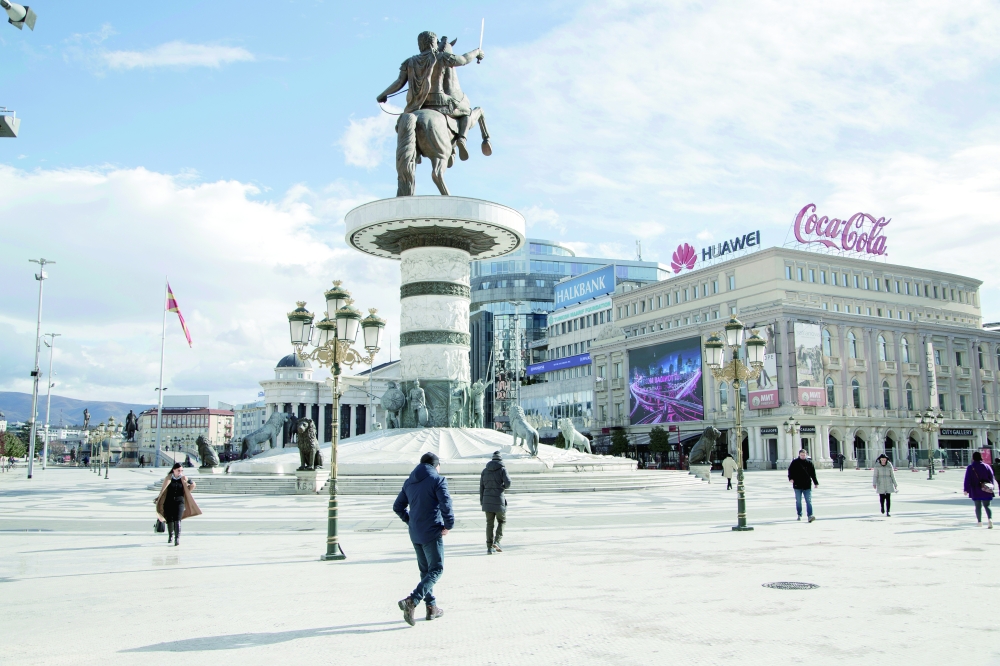

With Ukraine defending European values and security against a Russian assault, what obligation does the European Union and Nato have toward Ukraine?
The moral answer may be obvious, as European and American governments vow support for Kyiv and are pouring money and arms into Ukraine. But the practical answers are complicated, as ever, and are dividing Europe.
Defying expectations, the EU has provided significant military aid to Ukraine and inflicted enormous sanctions on Russia, acting with speed and authority. But now it is confronting a more difficult problem: how to bind vulnerable countries such as Ukraine, Moldova and Georgia to Europe in a way that helps them and does not create a further security risk down the road.
It is a question that will hang over a summit meeting of EU leaders, and one made more urgent by Ukraine’s demand for fast-track accession talks to join the bloc, which may not be decided before another meeting in late June.
Despite pressure to fast-track Ukraine, full membership for it or the other countries on Europe’s periphery in either Nato or the EU is unlikely for many years. But European leaders have already begun discussing ways to slowly integrate them and protect them.
French President Emmanuel Macron and Italian Prime Minister Mario Draghi have in recent weeks both talked of a new confederation with the EU, as opposed to the old notion of a core group and a periphery, or a “two-speed Europe,” which newer members reject as creating a second-class status.
In his speech on “Europe Day,” May 9, to the European Parliament, Macron floated a more formed, if still vague, proposal for a new kind of arrangement.
“The war in Ukraine and the legitimate aspiration of its people, just like that of Moldova and Georgia, to join the European Union encourages us to rethink our geography and the organisation of our continent,” he said.
Macron offered a sweeping vision of a new European Political Community — an outer circle of European states, including Ukraine, Georgia, Moldova and Britain — that would be linked to the EU but not be part of it.
Such a wider circle of European states would allow Brussels to bring vulnerable countries along Russia’s border into the European fold more rapidly than full EU membership, which “would in reality take several years, and most likely several decades,” Macron said.
Such a “political community” would, he said, “allow democratic European countries that believe in our core values a new space for political cooperation on security, energy, transport, infrastructure investment and free movement of people, especially our young people.”
The idea of concentric rings or “tiers” of European states, of a “multispeed Europe,” has been suggested several times before, including by then-French President François Mitterrand in 1989. Then, though, the idea included Russia; it went nowhere. Macron has brought it up before. But now, with Russia on the march, it is the time to make it real, he said.
In late February, four days after the Russian attack, Ukraine formally applied to join the bloc, and in March, EU leaders “acknowledged the European aspirations and the European choice of Ukraine.”
But even if European leaders decide to open negotiations with Ukraine, the process will be long, despite support for immediate membership from countries such as Poland and the Baltic states.
On May 22, Clément Beaune, France’s Europe minister, told French radio: “I don’t want to offer Ukrainians any illusions or lies.” A fast-track for Ukraine would probably further alienate the states in the Western Balkans, where the slow and cumbersome enlargement process “has disillusioned many while Russia and China have expanded their influence in the region as a result,” said Julia De Clerck-Sachsse of the German Marshall Fund in Brussels.
Proposals such as Macron’s “can help kick-start a wider discussion” among European leaders about how to better help and protect those who are not yet members, she said. “At the same time, they need to be careful that such ideas are not interpreted as a sort of ‘enlargement light’ that will undermine aspirations to full membership and further alienate” countries already disappointed by the process. - New York Times
Steven Erlanger
The writer is an American journalist who has reported from more than 120 countries
Oman Observer is now on the WhatsApp channel. Click here



